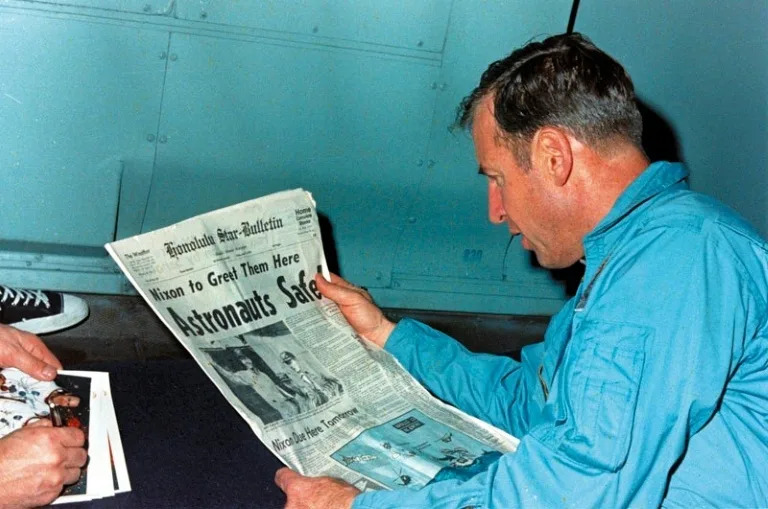Jim Lovell, Commander of Near-Disastrous Apollo 13 Mission, Dies at 97

James Lovell Jr., the astronaut whose command of the Apollo 13 mission captivated the world and averted potential tragedy in 1970, has passed away at age 97. NASA confirmed his death on Friday, stating that he died Thursday in a Chicago suburb.
Lovell’s career spanned pivotal moments in the United States’ lunar exploration program. Though he never stepped foot on the Moon himself – an ambition shared by many of his generation – he was regarded as a significant figure in American spaceflight history and portrayed by Tom Hanks in the acclaimed 1995 film adaptation of his mission.
The Apollo 13 flight, launched April 11, 1970, just nine months after Neil Armstrong’s historic lunar landing, aimed to achieve humanity’s third visit to the Moon. However, disaster struck when an oxygen tank ruptured en route, triggering a crisis that threatened the lives of Lovell and his crewmates Jack Swigert and Fred Haise. The ensuing emergency led to the iconic exchange: “Houston, we’ve had a problem,” initially uttered by Swigert, then repeated by Lovell as reported by NASA officials.
The subsequent days witnessed an extraordinary effort from ground control and the astronauts themselves as they maneuvered the crippled spacecraft back towards Earth. Lovell’s calm leadership, earning him the affectionate nickname “Smilin’ Jim” among his colleagues, was crucial to the successful rescue.
“Capt. Jim Lovell’s life and work inspired millions of people across the decades,” NASA stated in a formal expression of condolences to his family. The agency added that his “character and steadfast courage helped our nation reach the Moon” and transformed what could have been a catastrophic event into an invaluable learning experience. Prior to Apollo 13, Lovell played a key role in the Apollo 8 mission in December 1968, becoming one of three astronauts who achieved the first human orbit of the Moon, a vital precursor to lunar landings.









